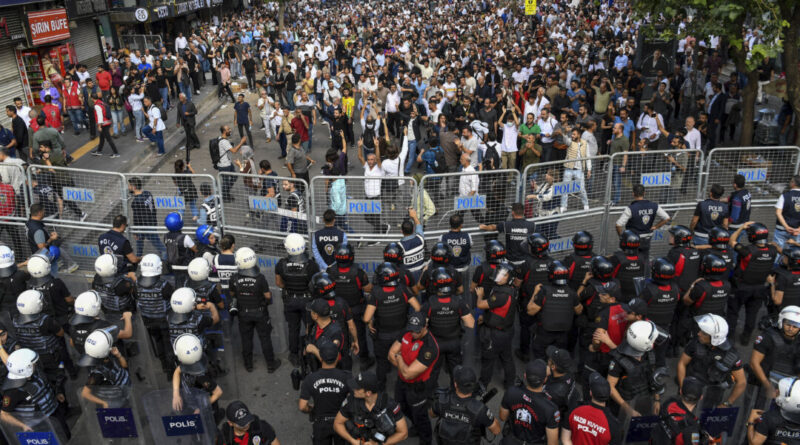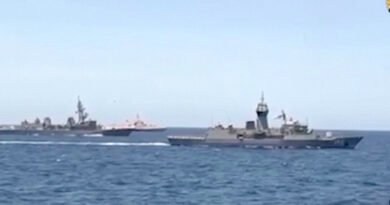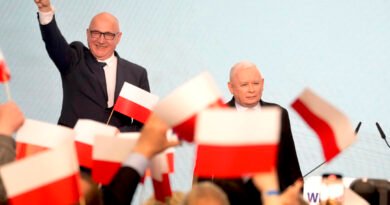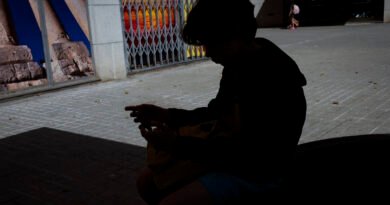Timing of Turkey’s Proposal to End Conflict by Offering Freedom to Jailed Terrorist Leader Sparks Controversy
The unexpected proposal by Turkey’s leadership may have more to do with domestic politics than the fight against terrorism, some observers suggest.
News Analysis
As tensions soar in the Middle East, Turkey appears to be nursing hopes of ending its perennial conflict with the Kurdistan Workers’ Party (PKK), which has long been considered a terrorist group by Ankara, Brussels, and Washington.
Last week, Devlet Bahceli, head of Turkey’s Nationalist Movement Party (MHP) and a virulent foe of the PKK, made a proposal that shocked many observers.
Bahceli suggested that Abdullah Ocalan, the PKK’s jailed leader, should be invited to appear before parliament and instruct his group to lay down its arms, thus ending its decades-long violent insurgency against the Turkish state.
In return, Bahceli said, the Turkish authorities would consider releasing Ocalan after 25 years of imprisonment.
“It is time to go beyond the usual discourse,” the MHP leader said. “I hope this will be the first step to unshackle the chain on our nation.”
Turkish President Recep Tayyip Erdogan has since endorsed the proposal, describing it on Oct. 30 as a “historic window of opportunity.”
Since 2016, Erdogan’s ruling Justice and Development Party (AKP) has been in a de facto coalition with Bahceli’s MHP, and the two parties share similar views—especially in regard to the PKK.
Erdogan went on to promise “good news for our nation that will guarantee the security of our entire southern border.”
After more than a week since Bahceli made the surprise announcement, however, details of the proposal remain vague.
“The position of the government is not clear yet,” said Ilhan Uzgel, deputy chairperson in charge of foreign affairs for the Republican People’s Party (CHP), Turkey’s main opposition party.
“They’re talking about a new initiative to launch a peace process, but they haven’t named it in any way,” Uzgel told The Epoch Times.
Aydin Sezer, a prominent Turkish political analyst, was more critical, saying there had been “no development that can be taken seriously at this stage.”
“Bahceli’s statements were addressed only to Ocalan,” Sezer told The Epoch Times. “The government only wants him to make a statement saying that terrorism is over.”
Ocalan helped establish the PKK in the late 1970s, claiming to seek an independent Kurdish state in the region. The group later moderated its stance, however, demanding autonomy in Turkey’s Kurdish-majority southeast.
Over the past 40 years, the PKK has carried out numerous terrorist attacks inside Turkey—on both military and civilian targets—resulting in thousands of deaths.
In 1999, Ocalan was captured by Turkish security forces and has been held at an island prison near Istanbul, in the Sea of Marmara, ever since.
Violent Response

Smoke rises as emergency rescue teams and police officers converge outside Turkish Aerospace Industries Inc. on the outskirts of Ankara, Turkey, on Oct. 23, 2024. IHA via AP
On Oct. 23—a day after Bahceli made the proposal—two PKK gunmen attacked the headquarters of a Turkish defense firm in Ankara, leaving five people dead, along with both perpetrators.
Turkey responded by carrying out two days of airstrikes on multiple PKK positions in northern Iraq, where the group is based, and Syria.
According to Sezer, the attack in Ankara was most likely ordered by the PKK’s Iraq-based leadership, who, he said, “don’t want peace.”
“It was a message: ‘Ocalan doesn’t have any influence over us. If you’re going to negotiate, you’re going to negotiate with us’,” Sezer said.
The deadly attack in the capital was also a signal to Turkey that the PKK “still has the capacity to take action,” he said.
The CHP’s Uzgel agreed, for the most part, saying there were “probably certain circles that want to hinder such a [peace] process.”
“It’s not the first time the PKK attacks a target in Turkey,” Uzgel said.
“That’s the pattern,” Uzgel said. “Whenever there’s a [peace] initiative, bombs explode in Turkey—attacks by the PKK or other terrorist organizations.”
Uzgel went on to question whether Ocalan still wields enough influence over the PKK to ensure that the group voluntarily lays down its weapons.
“Ocalan is an iconic personality for many Kurds,” Uzgel said. “Yes, he still has some influence but this is no longer 100 percent.”
“He’s been in jail for the last 25 years. He can reach out to PKK elements in Iraq if the [Turkish] state allows him to do so.”
Nevertheless, Uzgel said, it should not be assumed that the group’s Iraq-based leadership would “automatically” follow his instructions.
In recent years, NATO member Turkey has carried out several offensives into northern Iraq—and numerous airstrikes—with the aim of “neutralizing” the PKK.
It has also conducted incursions into northern Syria, where Turkish forces continue to fight the YPG, the PKK’s Syrian offshoot.
Further complicating the situation, the YPG works closely with U.S.-led coalition forces in Syria with the ostensible aim of fighting the ISIS terrorist group.

A member of the PKK next to pictures of jailed Kurdish leader Abdullah Ocalan in the southeastern Turkish city of Nusaybin on Feb. 25, 2016. Cagdas Erdogan/Getty Images
Why Now?
The Turkish government, meanwhile, has remained tight-lipped about the proposal, raising questions about the purpose—and timing—of the move.
According to Abdullah Agar, a Turkish expert on military affairs, Bahceli’s proposal could be related to steadily mounting tensions in the wider Middle East.
“Escalating regional conflict means Turkey has to be particularly cautious,” Agar told The Epoch Times.
“This instability fuels the tendency to exploit ethnic identities—not only in Turkey, but also in Iraq, Syria, and Iran,” he said.
The PKK, according to Agar, is “active in all these countries, where it takes advantage of this instability by exploiting its Kurdish identity.”
“For this reason,” he said, “Turkey may feel the need to develop new strategies to address the situation.”
Uzgel, for his part, likewise said that Bahceli’s proposal “may be related to regional developments.”
“But,” he said, “it’s very difficult to pinpoint the connection between what’s happening in the Middle East and why the government is asking for a new initiative to solve the [PKK] problem.”
“We still don’t know the content of the initiative,” Uzgel said. “It’s all very speculative right now because the government hasn’t been clear about its intentions.”
The Kurdish Vote
Meanwhile, there has been speculation in the opposition press that Bahceli’s proposal stems from domestic—rather than regional—considerations.
Echoing a common perception, Uzgel believes the move could be an attempt by Erdogan’s ruling AKP—in partnership with the MHP—to court Kurdish voters before a possible constitutional referendum.
“Erdogan wants to amend the constitution to let him run for another term,” Uzgel said. “He wants to guarantee his position in coming elections.”
Therefore, he said, the AKP “probably wants to attract the Kurdish vote.”
Last year, Erdogan secured a fresh five-year term in office, beating the CHP’s presidential candidate by a relatively narrow margin.
Sezer agreed with this assessment, saying the AKP-MHP alliance “wants to get the support of the Kurds in the new constitution process.”
Regardless of the government’s motives, the CHP supports the notion of talks with the PKK, according to Uzgel, CHP’s deputy chair.
“We’re supportive of any negotiated solution,” he said.
The CHP, he said, “is not against negotiations, provided they are transparent, parliament is involved, and they are held within the framework of Turkish law.”

A plume of smoke billowing over the mountains of Matin (Jabal Matin) near the Turkey-Iraq border on July 23, 2023
Source link
- Tragic Accident in Ecuador’s Amazon: 10 Lives Lost in Fatal Truck Crash
- Unusual CCP Statement Sparks Speculation: Is Xi Jinping Losing Power?





